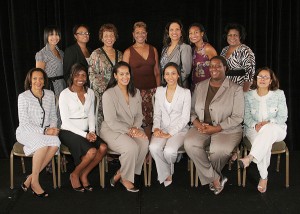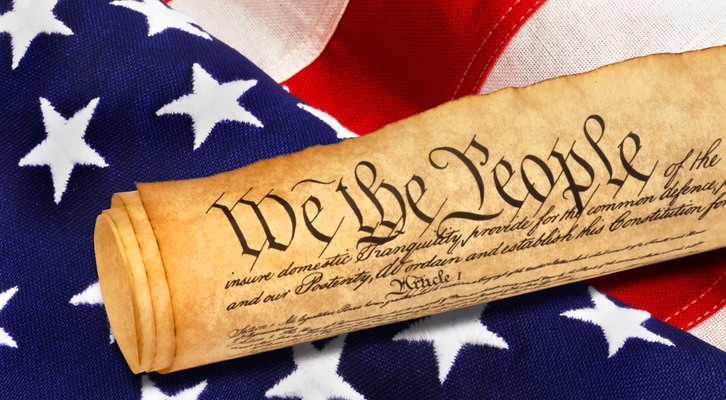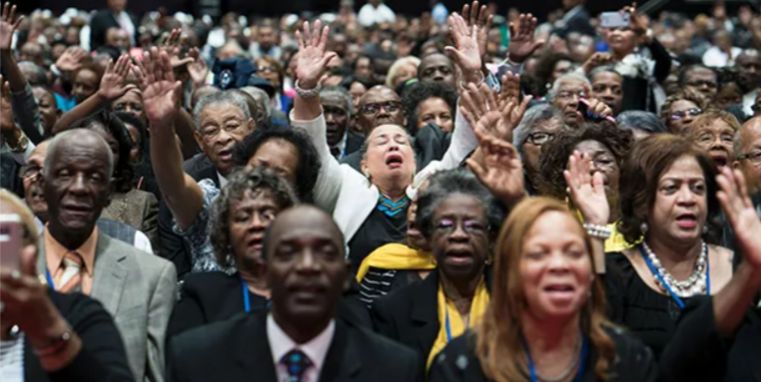(ThyBlackMan.com) When I awoke for work last night I had a News Alert from the Washington Post. It was regarding a special report based upon a new National survey where Black women define themselves.
Word.
The email blast teased the five page article written by Krissah Thompson as revealing “how Black women in America feel about career, religion, relationships, personal finances and discrimination.” Reading through the content each of those subjects is touched upon but it all comes back to one of the central themes in which Black women have been discussed in the media for at least the last five years: relationships.
It seems we finally have the Black woman’s side of the “Why Aren’t Black Women Married with Babies” meme. But where this article should have been a bold fuck you to Steve Harvey, Nightline, Ralph Richard Banks and others it comes across as more of a muffled forget you from a demographic who in this country are not respected, taken for granted, and piled upon because the running image of us is that we will just accept it. 
The article discusses how Black women are viewed in this country. We are angry, we are strong, we are unfeeling, we are manless. Images of us that go back to the archetypes of Mammy (asexual), Jezebel (hyper-sexual), Sapphire (angry) and the Welfare Queen (self-explanatory). Then there’s always the Zora Neal Hurston depiction as us as the mules of the earth. All these negative images are ones the article says we as Black women are redefining or should redefine. Author of Black Woman Redefined: Dispelling Myths and Discovering Fulfillment in the Age of Michelle Obama, Sophia Nelson says in the article, “You can play this however you want to. You’re living in the age of Michelle Obama.”
But just last week Michelle Obama had a chit chat with Gayle King on CBS’s revamped morning show where she downplayed criticisms that she is indeed an angry Black woman.
[youtube M8MF9vT0VAM]
An image of her supposedly created in the new book The Obama’s, written by Jodi Kantor, showing conflict between the East Wing led by an assertive and intelligent Black woman trying to find her place in the boys club of the West Wing run by a husband, the First Black President of the United States, who is still trying to navigate his role as commander in chief as it relates to his country, his race, and his own ideological principals.
In the age of Michelle Obama the Washington Post article based on a Washington Post-Kaiser Family Foundation survey of more than 800 women found:
- Religion is essential to most black women’s lives; being in a romantic relationship is not
- Nearly three-quarters of African American women say now is a good time to be a black woman in America
- A similar proportion worry about having enough money to pay their bills
- Half of black women surveyed call racism a “big problem” in the country
- Nearly half worry about being discriminated against
- Eighty-five percent say they are satisfied with their own lives, but one-fifth say they are often treated with less respect than other people
- Forty percent of black women say getting married is very important, compared with 55 percent of white women
- More than a fifth of black women say being wealthy is very important, compared with one in 20 white women
- Sixty-seven percent of black women describe themselves as having high self-esteem, compared with 43 percent of white women.
- Forty percent of black women say they experience frequent stress, compared with 51 percent of white women.
- Nearly half of black women fear being a victim of violent crime, compared with about a third of white women.”
We love the Lord, and being married is only important to 40 percent of us. Meanwhile, we’d like to have enough money to forget worrying about paying bills and if we could be wealthy that would be absolutely amazing. Of the 11 issues placed among the survey/interview participants to pick from and rank marriage and money come out as the two warring factors in the article; both signaling a type of stability in the United States not afforded in any other way.
The article tells the story of a 40-year-old New York TV executive who is loving and living life in a monogamous relationship where adoption is an option. The woman proudly proclaims, “I didn’t work this hard to get married.” Now juxtapose that story with that of a 21-year-old college senior so focused on education and career that she now fears not having had a boyfriend since high school makes her weak.
These two very opposite sides of the Black woman’s life spectrum exemplify images that are given to us and images we define for ourselves. Reading the story of TV executive and her statement of not working so hard just to get married, I wondered if that’s an affirmation made to cover up a source of pain. A source of pain that at 21, a college senior is worried about being with her until she turns 40.
The article’s author suggests “Black women are rethinking the meaning of success and fulfillment.” She writes, “Many are concluding that self-empowerment is the road to happiness, and happiness does not require a mate.”
Yet it seems that when read in its entirety while happiness may not require a mate as is the case in the last story of the five generations of strong Black women living and loving in the same household, lack of a mate may give some women cause for introspection about their successfully fabulous life that they may only share with themselves or like-minded successful and fabulous sister friends.
This is the case of redefining ourselves for ourselves while still fighting against mass media images that like to see us happy with a husband or angry and evil for our lack of one. See Waiting to Exhale.
But even as redefinition takes place Black women are slammed with an onslaught of suggestions to improve our marrying prospects such as dating blue collar men if we are professional women. Dating outside of our race which apparently 67 percent of us are open to, but only 9 percent actually marry. The reason being:
“Studies of online dating, for instance, have shown that black women are less likely than other women to receive messages of interest from men of other races. Researchers attribute that to a social hierarchy that still undervalues them and unflattering stereotypes of black women – loud, aggressive – that remain in the popular culture.”
Pop culture that glorifies us for all the wrong reasons and most often than not does not respect us. Not even the most famous among us.
So here we are left to our own devices romantic and otherwise. Forced to make due with what we’ve been give and of course make more of what we’ve already got. Here is where the image of the Black woman as the rock of the community comes into play. We take care of home and take care of business. And when asked about our “plan B” we simply say it’s reinforcing “plan A.”
As Essence Editor Constance White noted in the article, “Throughout history, black women have been overrepresented in the workforce compared with other women and have come to embrace work as an enduring part of their sense of self. Career for black women has always been about economic necessity and also a sense of economic destiny.”
It’s no secret Black women are no strangers to hard work. But as the demographic near the bottom of the United State’s totem pole we still can desire a lot more from the workforce than it is currently giving us. Black women make less than of course White men, White women, and Black men. According to the Bureau of Labor Statistics Black men make 74 cents on the dollar White Men make. White women make 80 cents on the dollar that White Men make. Black women make 69 cents on the dollar White Men make. That’s just three cents more than the amount Hispanic men make on the dollar compared to White men. This income disparity is further exacerbated during times of economic uncertainty when the “last hired, first fired” practice of employment hits minority communities first. Minority communities where women are working and taking care of home are then decimated in one economic blow that was most often not of their/our making.
The article says:
“Despite miraculous income and educational gains for generations, the social and economic advancement of black women has always been precarious,” says Paula J. Giddings, who teaches at Smith College and has written about the political and social history of black women. “All of our wealth and all of the generational aspiration can disappear – just evaporate – if you lose your house, your health, if you have to take care of a needy family member or if you can’t get that loan to continue college.”
At a time when “one-third of employed Black women work in management or professional jobs, a record number are attending college and retaining degrees and the number of businesses owned by black women has nearly doubled to more than 900-thousand according to census figures” we still need more. We are still vulnerable to the ways of the world, more specifically of our own country that seeks to put us in a box with a definition that is not our own.
I applaud this article for highlighting several issues facing Black women that are downright antagonistic to our very being in this country. Where I question the sincerity is when those same issues are explored without anything new being brought to the dialogue.
Black women as the rock of the Black community, Black women as providers, givers, determined and driven yet single, but not always are images of us that have persisted since slavery. Our worries about our finances, our future, our children’s future, our education, and whether or not we’re just good enough to compete have persisted since slavery. These issues, our issues are nothing new and this article’s in depth look at them is still not deep enough. In five pages that was to cover career, religion, relationships, personal finances and discrimination the main focus was relationships and career/personal finances. Religion was used as measure of importance against relationships and discrimination was discussed in the context of career and personal finances.
Even in an article seeking to redefine ourselves for ourselves and by ourselves we are still boiled down to two bland issues that do not make up the entire complex context of who we are. The article sought to explain to enlighten and empower when at times it made me question whether or not this whole exercise/special report is just another of our coping measures to make ourselves feel better with some aspects of our Black womanhood that remain out of our control. The message of the article was we are more than what media reports and people see and here’s why, when it should have been love yourself above all else. The article tried to pinpoint how Black women feel on a variety of issues, yet focused on the loudest topics of the last five years; men, marriage and money when we are much more than that.
Either this goes to show that even when we tell our own stories we can’t steer clear of the worn path of hackneyed viewpoints that do more harm than good to us, or there is little else to us, little dimension, little variety than what has already been established by others about us.
We all know this is false which is why I’m at a loss for how an initiative steeped in so much good and richness could still come up short and lacking.
Maybe it’s because no survey no matter who or how many Black women participate can define an entire group of women in just five pages with 11 bullet points of information about us. It’s absurd to think it could just as it is absurd to think a survey could expound on the wide range of racism and discrimination in this country. Right now what we have is a snapshot of a group explained in a way that wraps us all and our issues in a neat little bow when the reality is much messier than a number cruncher could ever compute.
The study is a start but in no way is it the complete beginning or a final ending of which must still be written.
Does the Washington Post article do Black women in America justice or does it still fall short of explaining all of who and what we are?
Staff Writer; Nikesha Leeper
To connect with this sister feel free to visit; Change Comes Slow.
















Maybe if you spent more time trying to find ways to build with your men, then your economic situation wouldn’t feel so precarious. If you think corporate America will save you, think again. Running to whitey has never been an effective tool in any period for protection. People outside of your group are not required to give you a job or your economic stability: you are.
Ms Leeper, I can feel the heat, anger and passion in your comment. Respecting you as a Black lady, I wouldn’t start any statement or comment with F*ck Anyone, not even my worst enemy. In your comment you leaned heavily on statistics. I’ve always been told that statistics are lies and damn lies. Numbers don’t lie but they can be made to lie. When looking at a statistical analyse, look first at who paid for the study and you’ll see who got the favorable results (Washington Post). Ask Washington Post in #8 of their analyse how one fifth is different from one in twenty? I’d like to offer one small comment to your conundrum. When you can’t change the situation, you have to change yourself. Peace and Love
Excellent article!